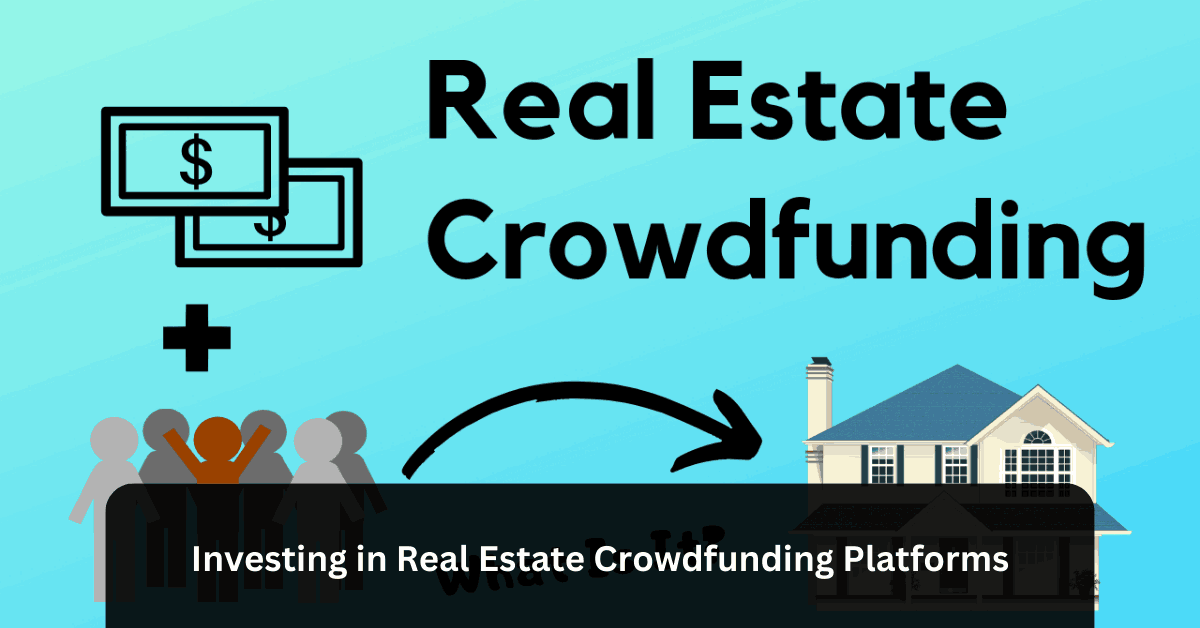Real estate investment has undergone a transformation in the digital age, thanks to the advent of crowdfunding platforms.
Real estate crowdfunding allows investors to pool their funds and collectively invest in a variety of real estate projects, democratizing access to an asset class traditionally associated with high barriers to entry.
In this comprehensive guide, we will explore the ins and outs of investing in real estate through crowdfunding platforms.
Understanding Real Estate Crowdfunding:
Real estate crowdfunding involves a group of investors collectively contributing funds to finance a real estate project. These platforms connect investors with developers or property owners, offering a range of investment opportunities that may include residential, commercial, or industrial properties. Investors typically receive returns in the form of rental income, capital appreciation, or a share of the profits upon property sale.
Key Components of Real Estate Crowdfunding Platforms:
1. Project Selection:
Investors can choose from a variety of real estate projects listed on crowdfunding platforms. These may include residential developments, commercial buildings, or even niche projects like hotels or storage facilities. Each project typically provides details about its location, expected returns, and the development timeline.
2. Investment Models:
Crowdfunding platforms offer different investment models. Equity crowdfunding involves purchasing a share in the property, entitling investors to a portion of the rental income and potential profits. Debt crowdfunding involves lending money to developers in exchange for fixed interest payments and return of the principal.
3. Platform Due Diligence:
Before investing, it’s crucial to conduct due diligence on the crowdfunding platform itself. This includes assessing the platform’s track record, reputation, and the transparency of its communication. Established platforms often provide detailed information about past projects and their performance.
4. Risk Mitigation:
While real estate crowdfunding can offer attractive returns, it comes with inherent risks. Investors should carefully assess the risks associated with each project, considering factors such as market conditions, the reputation of the developer, and the project’s financial viability. Diversifying investments across multiple projects can help mitigate risks.
Benefits of Real Estate Crowdfunding:
1. Diversification:
Real estate crowdfunding allows investors to diversify their portfolios by gaining exposure to a range of properties and projects, even with relatively small investment amounts.
2. Accessibility:
Crowdfunding platforms make real estate investment accessible to a broader audience, including individuals who may not have the capital to invest in entire properties independently.
3. Passive Income:
Investors can earn passive income through rental returns or interest payments without the day-to-day responsibilities of property management.
4. Lower Entry Barriers:
Real estate crowdfunding lowers traditional entry barriers associated with real estate investment, such as the need for substantial capital, industry expertise, or extensive networks.
Challenges and Considerations:
1. Lack of Liquidity:
Real estate investments, including those made through crowdfunding, often lack liquidity. Investors may need to commit funds for the duration of the project, which can range from several months to years.
2. Market Risks:
Real estate markets are subject to economic fluctuations and market-specific risks. Changes in property values, interest rates, or local economic conditions can impact the success of crowdfunding projects.
3. Regulatory Compliance:
Investors should be aware of regulatory requirements governing real estate crowdfunding in their jurisdiction. Compliance with securities regulations and investor protection laws is crucial.
4. Platform Fees:
Crowdfunding platforms typically charge fees for their services. Investors should understand the fee structure, including any upfront fees, ongoing management fees, and performance-based fees.
Tips for Successful Real Estate Crowdfunding:
- Conduct Thorough Research: Before investing, thoroughly research the crowdfunding platform, the specific project, and the developers involved. Review project documentation, financial projections, and the platform’s terms and conditions.
- Diversify Your Investments: Spread your investments across multiple projects to reduce risk. Diversification can help mitigate the impact of underperforming projects on your overall portfolio.
- Understand the Risks: Acknowledge and understand the risks associated with real estate investments. Market conditions, project delays, or unforeseen circumstances can impact returns.
- Stay Informed: Regularly monitor project updates and stay informed about market trends and conditions. Being aware of developments allows you to make informed decisions about your investments.
Conclusion:
Real estate crowdfunding platforms provide a modern and accessible avenue for individuals to participate in real estate investment. By understanding the dynamics of these platforms, conducting due diligence, and carefully selecting projects, investors can potentially benefit from the returns and diversification that real estate crowdfunding offers. As with any investment, it’s essential to approach real estate crowdfunding with a clear understanding of the associated risks and to make decisions based on informed analysis and a long-term perspective.
